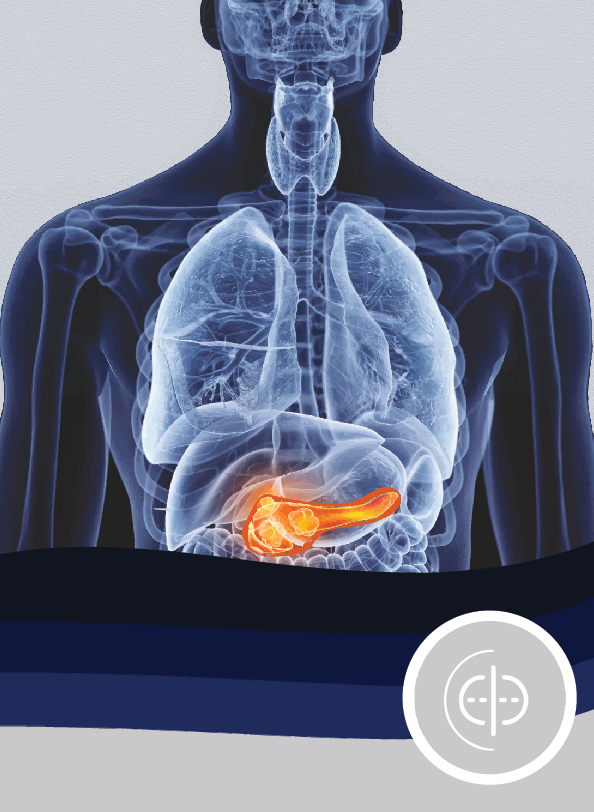
Correlating PDAC Molecular Features
First, researchers performed whole exome sequencing (WES) for paired tumor and blood samples from a PDAC patient cohort. A subset of those samples, with high tumor cellularity and mRNA sequencing, was selected for proteome and phosphoproteome profiling. As a result, seven genes of interest were identified for correlation analysis with protein/phosphorylation levels. This line of investigation revealed strong associations with phosphorylation levels of RhoA signaling proteins as well as with pathways related to cell proliferation/apoptosis cell adhesion/cytoskeleton. Correlation analysis of mRNA and protein abundance led to the identification of multiple genes of interest, four of which were selected for experimental validation performing short hairpin RNA-based knockdown experiments. These experiments bolstered their potential as prognostic biomarkers in patients with PDAC, demonstrating suppression in cell proliferation, cell migration, three-dimensional spheroid formation and growth, and other relevant phenotypes.
Characterizing PDAC Subtypes
In an effort to refine a set of three conventional PDAC subtypes using RNA data, the team began with a clustering analysis using mRNA sequencing, proteome, and phosphoproteome data. Combining results from the three different analyses led to the identification of six unique subtypes referred to as Sub1-6. Sub1-6 were further differentiated via deconvolution analyses and other methods; the resultant subgroups possess unique features which offer promising targets for early diagnosis and therapy. In response to these subtypes, lead investigator Dr. Sang-Won Lee wrote, “this detailed characterization will provide unique and powerful insights concerning PDAC biology and the therapeutic tailoring of treatments for aggressive squamous tumors.”
An International Cancer Moonshot Collaboration
This work was conducted under the auspices of a Memorandum of Understanding between Korea University’s Center for Proteogenome Research and the US National Cancer Institute’s International Cancer Proteogenome Consortium, a cancer moonhot program. The ICPC encourages international cooperation and coordination among institutions and nations in proteogenomic cancer research in which biomedical research datasets are made available to the public. This study was also conducted in collaboration with the US National Cancer Institute’s Clinical Proteomic Tumor Analysis Consortium. When asked about the importance of this multi-institutional cancer moonshot effort, lead investigator Dr. Daehee Hwang wrote, “this work would not be possible without the seamless collaborations between institutions and individual consortium researchers. Bringing together scientists with expertise in disease, genomics, proteomics, bioinformatics, immunology, and molecular/cellular biology has been a wonderful experience.”
Future Research
Moving forward, the group intends to develop a proteogenomic panel for targeted proteomics to predict which subtype a particular patient belongs to. This tool may allow oncologists to predict patient prognoses with much improved accuracy and tailor therapeutic options to combat their specific subtype. Additionally, the team will screen potential drug candidates targeting key cellular pathways associated with the proteogenomic subtypes identified. These efforts, and those enabled by the public accessibility of biomedical research data from this publication, will serve to improve outcomes for patients with PDAC.

